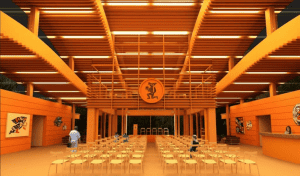
Architectural Acoustics: A Building Design Essential (Part 2)
Architects generally receive little, if any, education in acoustics. In formulating design goals for projects, acoustics is a low priority – except when it is

Architects generally receive little, if any, education in acoustics. In formulating design goals for projects, acoustics is a low priority – except when it is

Architectural acoustics has been described as something of a black art or perhaps more charitably, an arcane science. While not purely an art, at its

Ever wondered what acoustic engineering consultants are typically asked to do when they’re… consulted? Maybe you have an acoustics-related problem of your own but aren’t sure what questions to ask? First of all, please don’t hesitate to contact us and express your concerns, because at BAP Acoustics, we believe there are no wrong questions, especially not when they elicit sound advice. Secondly, we hear certain types of questions so frequently we feel they warrant their own blog post, so please read on. You may see your own question—or one relevant to it—addressed below.

British Colombia is known nationally and beyond not only for its abundant natural beauty, but the real estate prices—the highest in Canada—that beauty inspires and enables. This holds particularly true for large urban centres such as Vancouver and Victoria, where owning a detached house remains out of reach for most middle class people. So it’s easy to understand how condominium (or strata) living presents a more accessible alternative. My husband and I live in the second Vancouver condo we’ve owned in the many years we’ve lived here and can attest to numerous advantages strata living offers, which, aside from relative affordability, include shared property maintenance costs and freedom from responsibilities like shovelling what little snow falls here.

Whether it’s elevating home organization to a zen-like practice or hurling truck tires around an echo chamber, some trends take root virtually over night and blossom at length despite their glaring (or, more fittingly blaring) issues.

You are sitting in a restaurant surrounded by some of your best friends. The food is great and the drinks are cold. The restaurant is gradually getting busier. Between the chatter and the background music, you begin to raise your voice to be heard by those at your table. You are not alone in this. Almost everyone else is doing the same. The background chatter gets louder and louder as everyone in the room also raises their voice to be heard. This is the Lombard Effect: the tendency for humans to raise their voice in the presence of noise.